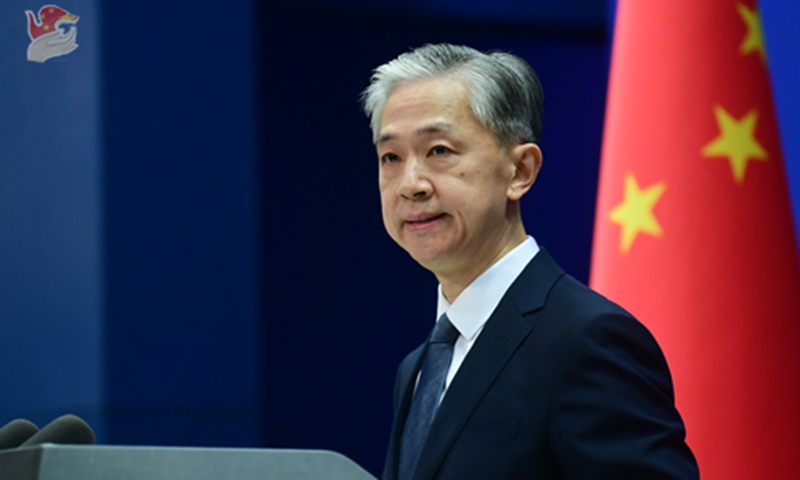If China adopts passive epidemic response like certain countries, 112 million could be infected: FM

Chinese Foreign Ministry spokesperson Wang Wenbin Photo: fmprc.gov.cn
China’s anti-epidemic policy is “scientific, accurate and efficient” and accountable to people, and if China adopts the passive epidemic response of “lying flat” like certain countries, it may result in 112 million citizens being infected, said foreign ministry spokesperson Wang Wenbin in response to claims by US envoy to China Nicholas Burns that the dynamic zero COVID policy could affect foreign investment.
China has full confidence in achieving its goal of “preventing the epidemic, stabilizing the economy and developing in a secure way,” Wang said at a regular press briefing in Beijing on Friday. He explained that the aim of China’s dynamic zero COVID policy is to prioritize the lives and health of more than 1.4 billion people.
If China adopts the passive response of “lying flat” like certain countries, it may result in 112 million citizens being infected and the deaths of 1.6 million people, Wang said, citing research by Nature Medicine magazine.
“While the average life expectancy in some developed countries such as the US decreased during the epidemic, China's average life expectancy has risen steadily in the past two years,” Wang said.
According to Wang, China has always optimized its prevention and control measures according to the development and changes of the epidemic situation, and achieved remarkable results. China has successively gone through four stages of development: emergency containment of sudden outbreaks, exploration of normalized prevention and control, precise prevention across entire chains and comprehensive prevention and control.
“At present, everyone can see that the overall epidemic situation in China is stable. The epidemic situation in Shanghai and other places has been effectively controlled, and normal production and life order are being restored in an orderly manner” Wang said, stressing that thanks to the anti-epidemic policy, China reduced the fallout from the epidemic and enabled stable development.
In May, China’s economy achieved better-than-expected growth, shrugging off the negative impact of the epidemic. In the first five months, foreign investment in China expanded 17.3 percent year-on-year, with investment from South Korea, the US and Germany growing 62.8 percent, 27.1 percent and 21.4 percent, respectively.
“This shows foreign businesses’ confidence in China’s economic and social development,” Wang said. “Effective epidemic prevention is the foundation of social and economic development, and is also conducive for the business environment.”
